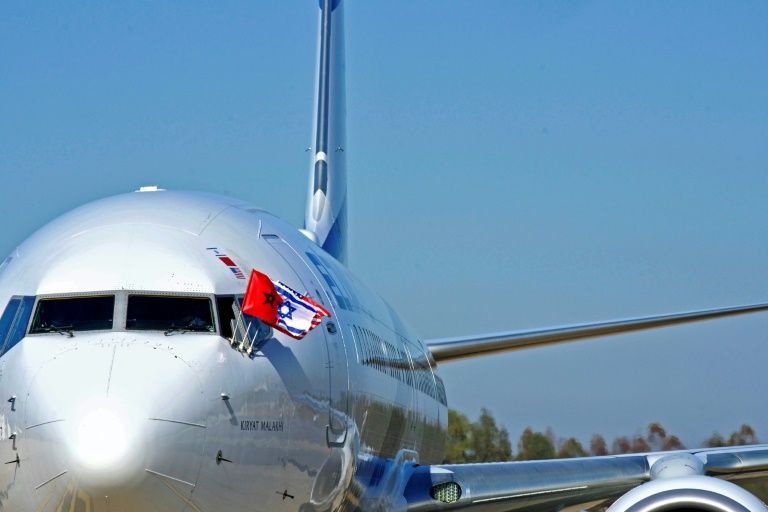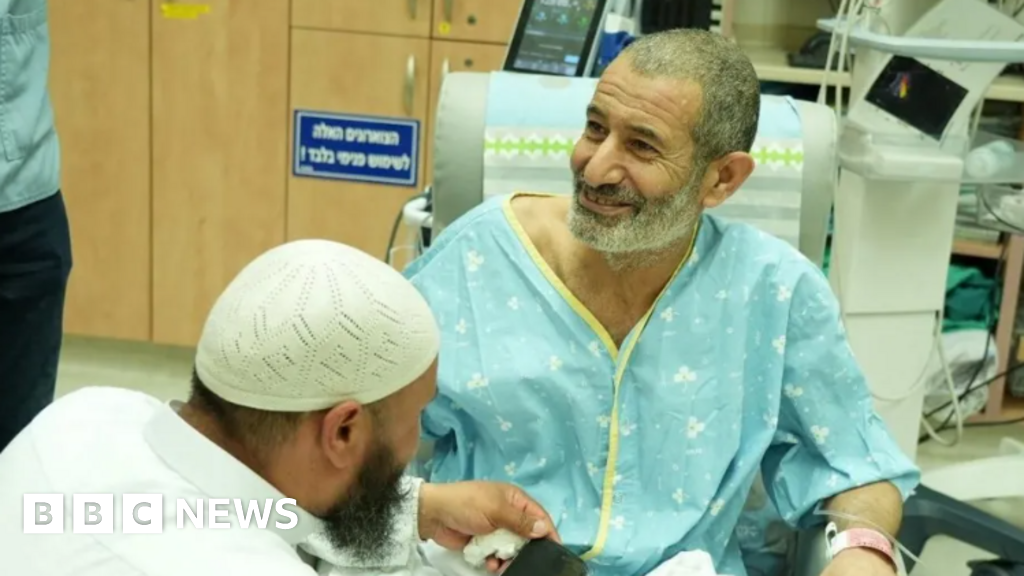Fanny Mergie has no doubt that Moroccan Jews are “already packing their bags” on direct flights to Israel after the kingdom normalized relations with the Jewish state.
Morocco, home to the largest Jewish community in North Africa and the ancestral home of nearly 700,000 Israelis, is hoping for an influx of Israeli tourists as the Covid-19 pandemic subsides.
“I am very happy” because the five-hour route will be served by direct flights, said Al-Mergawi, a Moroccan Jew who lives in Casablanca.
“It is a real revolution.”
The first direct commercial flight from Tel Aviv to Rabat was headed in December to celebrate the trilateral agreement brokered by the United States, under which Washington also recognized Moroccan sovereignty over the disputed Western Sahara.
But tickets for regular commercial flights have not yet gone on sale.
Bureaucratic delays have been exacerbated by the pandemic, which has forced Morocco to close its mostly borders since March and impose a nationwide curfew in December.
Singer Susan Harouch, who had to wait 14 hours at an airport in Paris the last time she visited Israel, described the Israeli-Moroccan rapprochement as a “miracle”.
“A lot of my family lives there,” the 67-year-old said. “I can’t wait to see them more, more often.”
Historical links
Israel set up liaison offices in Morocco in the 1990s during a short-lived diplomatic opening.
But it was closed again in the early 2000s as the second Palestinian intifada led to an overwhelming Israeli response.
However, relations continued quietly, with about $ 149 million in bilateral trade between 2014-2017, according to Moroccan news reports.
The reopening of liaison offices could make it easier for Moroccans to obtain visas to visit Israel.
Morocco also hopes to host more Israeli visitors.
Official statistics show that before the coronavirus pandemic, up to 70,000 Israeli tourists visited the country annually.
Most of them were of Moroccan descent and had a close relationship with their country of origin.
“The majority of Israelis of Moroccan origin are happy,” said Avraham Avizemir, who left Casablanca as a toddler and lived for decades in Israel.
He said that the fact that their children and grandchildren are returning is “huge.”
One of the Israelis already in Morocco is Ilan.
The 34-year-old sat in the library of a synagogue in Casablanca, where he and other Israeli Jews, most of them of Moroccan origin, are receiving religious lessons from a Moroccan rabbi.
“Direct flights will make travel easier,” he said.
The history of the Moroccan Jewish community goes back to ancient times.
It was strengthened in the fifteenth century by the Jews who were expelled from Spain, and by the late 1940’s they numbered around 250,000 people – about one-tenth of the population. However, this number decreased with the departure of many Moroccan Jews to the newly established State of Israel.
Today, about 3,000 Jews remain in Morocco.
– Said optimistic –
Businessman Georges Sebat, 56, said he is “very happy and very optimistic” about the normalization of the situation in Morocco, noting the positive effects on tourism and the economy.
Prosper Bensimon, who was speaking after evening prayers at the Im Habanim Synagogue in Casablanca, agreed.
“Four of my Muslim neighbors want to accompany me on my first visit from Morocco,” he said.
But normalization was not universally welcomed by Moroccans.
Sion Asidon, a prominent left-wing academic and activist who supports the Boycott, Divestment and Sanctions movement against Israel’s treatment of the Palestinians, is vehemently opposed.
“The latest heresy is to justify the shame of normalization by citing Morocco’s historical links with the Moroccan colonialists,” he wrote on Facebook.
Morki, a young former Zionist activist, said that she immigrated to Israel in the 1960s but returned to Morocco after the 1967 Six Day War.
“I cannot accept that the Jewish state in which I believe will occupy the Palestinian land,” she said.
She urged Israel to support “the establishment of a Palestinian state.”
But she added that she welcomes “every step towards peace.”
isb-ko / sof / par / dv

“Študent. Nadšenec kávy. Badateľ priateľský k hipsterom. Zlý podnikateľ. Extrémny internetový fanatik.”





